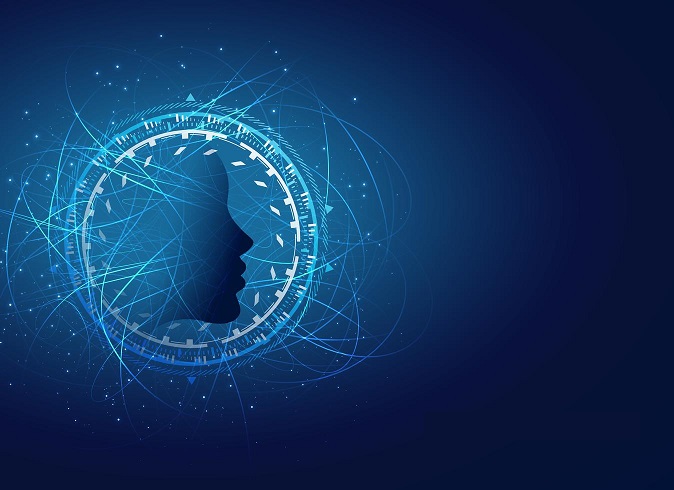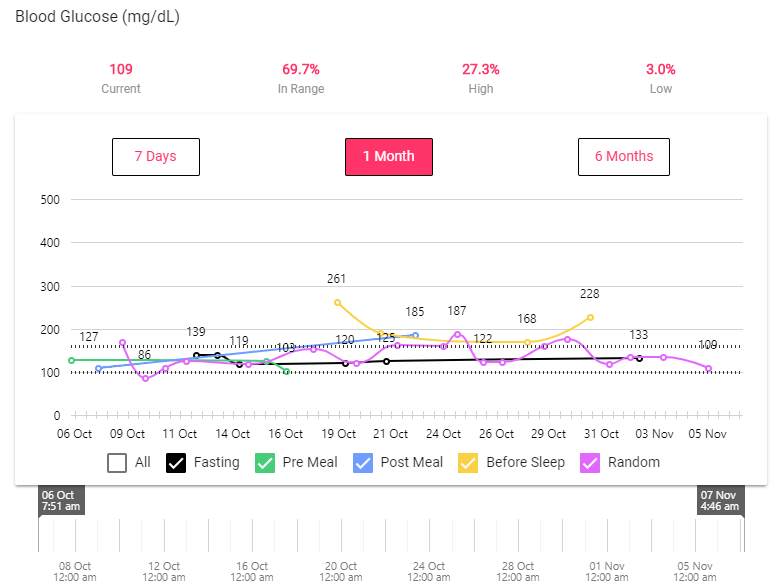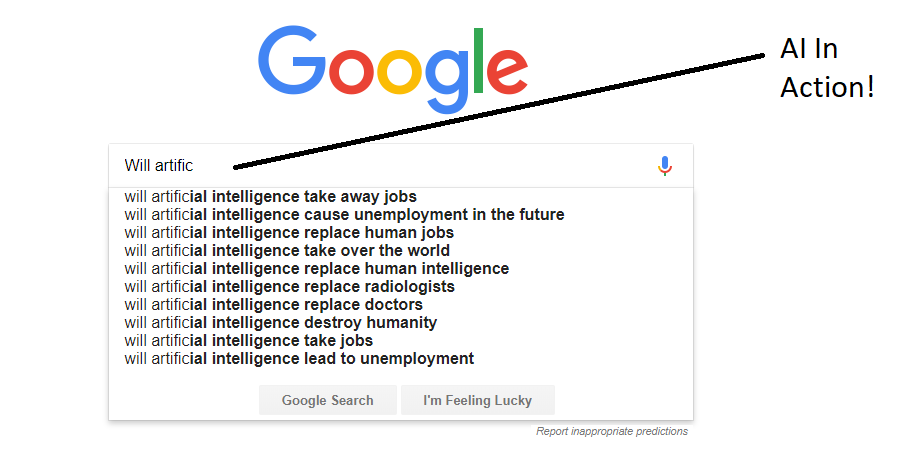Artificial intelligence in healthcare is an emerging concept. And it is exciting.
Healthcare is advancing in leaps and bounds every day. Newer treatments, quicker diagnosis and complex techniques have now made diagnosing even some of the most intriguing clinical conditions easier.
Not just that – home monitoring has become common practice these days. More and more people are checking their blood pressure and blood glucose levels at home.
They are actively tracking how their treatments are working. They are actively monitoring whether their lifestyle changes and exercise routines are making a difference to their overall health.
The advent of health monitoring devices has led to a paradigm shift in how medical professionals manage the health of patients. Devices such as the Fitbit (and similar devices), Accucheck glucose monitors and Omron blood pressure devices are pretty much present in most households these days.
However, I personally feel that the benefit of these devices is truly undervalued.
Let me explain.
Long Term Benefits
Most clinical trials that are conducted in medicine have certain ‘end points’. For example, studies looking at heart disease aim to determine if a particular treatment or a particular blood pressure recording leads to complications or death in the future.
Recently there has been a great deal of buzz in the medical community about a drug used in the treatment of heart failure. This drug reduces cardiovascular mortality by 20%, which is remarkable in the grand scheme of things.
Similarly, if people with diabetes have good control of glucose levels, they have delayed complications or a lesser chance of developing diabetes complications.
So would it not be great if there was a way to determine how a patient’s sugar or blood pressure values are on a daily basis, monitor trends and come out with predictive insights in the future?
Doctors are always on the lookout to prevent health problems for patients. Preventive healthcare is the future of medicine.
Of late, I have been using an app called Phable to monitor patients from home. It allows me to see how they are controlling their sugars, maintaining their blood pressure, sticking to their medication time and many other similar parameters.
While this may, to a small extent, sound like a few other apps out there, it in fact is vastly different and much more advanced.

Phable is based on machine learning and artificial intelligence algorithms, that promptly updates patients whether they are keeping in good health or not. It also seamlessly integrates with a number of devices that are used to monitor health these days, utilising the data provided and coming up with smart suggestions.
Not only does it help maintain compliance of patients to medications and lifestyle changes, it also helps the doctor tremendously.
By monitoring how a patient’s sugar levels and blood pressure levels are, along with other health parameters, doctors are able to –
1. See how their patients are responding to treatment
2. Contact the patient in a non-intrusive manner and inform them that things are all okay
3. Build a better relationship with their patient.
The final point is what really matters. I currently have over 150 patients on this app, and I regularly monitor these patients and contact them if necessary.
It has not just helped manage them better, it gives the patient the confidence to the patient that I am monitoring their health.
This is just one side of it.

In the long run, I believe that artificial intelligence will play a big role in the healthcare industry. This will especially be true in predicting what a person’s long term outcome will be.
AI has the capability of analysing a ton of data in seconds, and can come up with predictions based on patterns.
For example, a patient aged 45 years, has a random blood glucose value of 130, and their readings for the last year have been a value ‘X’. What are their chances of having heart disease in the future?
Artificial intelligence would be able to do that. It would allow for early intervention, which in turn would be life-saving.
I had the opportunity to speak to two of the 3 co-founders of Phable – Mr Mukesh Bansal and Mr Prashanth Reddy (Mr Sumit Sinha is the 3rd) about how they feel artificial intelligence matters when it comes to health.
‘I strongly believe data driven care is the future of the medical world‘, says Prashanth. ‘Doctors can help patients prevent several health complications in advance and understand the efficacy of their treatment‘, he adds.
Mukesh does not seem to differ in his opinion. He adds – ‘We have seen many industries like automobile, aviation, consumer electronics etc. embrace AI and reap immense benefits in terms of efficiency, superior consumer experience and hyper-personalisation. The same could, and should, be applied for healthcare‘.
Artificial Intelligence In Healthcare
I mentioned earlier devices that monitor health. Heart rate monitors, BP machines etc carry a lot of health related data that bears a tremendous value if studied extensively.
The data that can be put together from the millions of people in our country is just too difficult to study for a human.
But not for a machine.
Artificial intelligence has the capability to do this.
‘We are yet to see artificial intelligence being used robustly in healthcare. The biggest roadblock is lack of data and a connected ecosystem‘, says Mukesh.
‘We need to make a cohesive effort to bridge this gap by bringing all home care and clinical devices and seamlessly integrate data emanating from hospitals and homes‘, he adds.
But will it help? Of course!
According to an article in the British Medical Journal, AI ‘can use sophisticated algorithms to ‘learn’ features from a large volume of healthcare data, and then use the obtained insights to assist clinical practice’.
‘An AI system can help to reduce diagnostic and therapeutic errors that are inevitable in the human clinical practice’.
However, the key point mentioned in this article is – ‘an AI system extracts useful information from a large patient population to assist making real-time inferences for health risk alert and health outcome prediction’.
This is what it is really all about.
There is some concern that AI might replace doctors in years to come. However, medical practitioners believe that this will never happen, as do I.
Why?
AI can never replace the comforting voice of a doctor. I can never replace the human touch.
But what it could do is make patient’s lives better by providing information on how their health might be 10 years down the line.
‘Applying AI on heath data can deliver superior insights to treating doctors and ensure patients are diagnosed and treated better – all this with minimal time investment from the doctor‘, says Prashanth.
For all you know, if AI begins to track health in humans from childhood days, it might just be able to predict when you would live until.
Scary thought yes, but beneficial nonetheless.
It might just motivate people to take care of their health and prevent health problems in the future.
‘At Phable, our connected care ecosystem is already creating wonders in personalised delivery care‘, says Mukesh.
Prashanth adds – ‘the complimentary force of AI when combined with the doctor’s practice knowledge can create far reaching reforms in the way treatment efficacy and disease incidence is measured and understood‘.
The algorithms in artificial intelligence do not just look at blood sugars and blood pressure though. It is much deeper than that.
For example, there is one area of AI that looks at medical records, reads research papers and other written information, processes it and then presents this as structured data for studying.
This aspect of artificial intelligence in healthcare is called natural language processing, or NLP.
The entire process is not really that complex, as displayed in this image below.

AI will not just impact chronic diseases such as diabetes and high blood pressure, but will also have an impact in cancer management, stroke and numerous such conditions.
In fact, in one study, AI was able to identify images of skin diseases as some forms of cancer.
In another study, doctors were able to predict whether or not cardiac patients would develop a fatal cardiac rhythm problem using artificial intelligence and deep learning one hour before it happened.
By studying infection patterns in intensive care units, AI might be able to predict which patients are at risk of picking up infections. Right steps can be taken to prevent them from cropping up.
Now that’s saving lives!
The concept of AI is recent, but not new. Google has been using AI algorithms for a while now, as depicted in their new email messaging system and search engine entry.

The search engine results is based on machine learning. The system has kind of learned what it is a user is looking for, and providing smart results based on that.
In a study published in Nature, machine learning and AI assessment of electronic health records was able to predict in-hospital death rates of patients.
There is a lot of data pertaining to patients health floating around that is not being used.
According to IBM Watson (a premier AI based company), each individual will produce enough clinical data to fill 300 million textbooks!
Imagine how that data could help humankind.
Obviously, humans cannot compute or study such data in a lifetime. AI certainly makes this possible.
Bringing Patients Closer To Doctors
India is a huge country. There is a vast area of our nation that falls under the definition of ‘rural’.
Unfortunately, some of the best healthcare centers in our country are in urban areas.
This limits access for people living in rural areas to quality healthcare services.
On the flip side, there may be diagnostics centers in rural areas, but not enough qualified doctors to interpret the results.
For example, if a patient with a cough went to a diagnostic center in a rural area and had a chest x-ray, a relatively junior doctor working at the center might miss a small shadow in the apex of the lung.
By utilizing AI based apps, it is possible for these x-rays to be interpreted by artificial intelligence in an almost accurate manner. This would reduce the need for highly qualified radiologists (or other specialists) to be onsite.
Let’s go a step further now.
Many of us love to take selfies. Did you know that this could be a tool to detect certain diseases?
In the United Kingdom, they have developed a tool that helps determine if a child has certain developmental conditions just by analysing a picture of their face!
Of course, there are still many details that need ironing out, but I am confident that this will be the ‘go-to’ tool in the near future, given the rate of growth of this field right now.
How Will Doctors Accept Artificial Intelligence?
While I personally think that most of them will be accepting and possibly even passionate about it, a handful may voice protest. After all, Babylon Health’s AI system beat doctors in UK in making a clinical diagnosis!
But can a machine do a doctor’s job?
What needs to be taken into account is that AI in healthcare is not there to replace doctors. It is there to help them make a faster, more accurate diagnosis.
A machine cannot reassure a patient. A machine cannot tell the patient or their relatives that everything is going to be okay with empathy.
Lives are at stake in the healthcare business. If there is a tool that has been proven to help improve patient care, then it should be used.
I believe that AI in healthcare is here to stay, and the medical profession should embrace it with open arms.
Closing Remarks
Artificial intelligence in healthcare, combined with deep learning is the future of patient care. It is bound to help improve patient management, and may even, in the future, allow people to ‘foresee’ what their health will be like 20 years from now.
Got any thoughts on this? Why not leave a comment below!
- Understanding Iron Deficiency Anemia: A Guide for Patients - May 31, 2025
- CT Coronary Calcium Score: A Guide for Patients - January 7, 2024
- Gastric Antral Vascular Ectasia (GAVE) – Causes, Diagnosis, and Treatment - August 5, 2023


Dear Dr. Baliga,
Thanks for the interesting, innovative and informative article.
My view is that AI can never replace any doctor. It is, after all, a tool to assist the Doctor. It is of supplementing and complimenting nature and never replacing a Doctor, simply because the structure in preparation of a doctor in his educational methodology and hands-on experience are entirely unique in nature varying between different doctors at any given moment of time.
With best wishes and kind regards,
Sincerely,
MR Nayak
Dear Dr Vivek Baliga,
Very thought provoking and informative
Article. But I am bit skeptical about the implementation of this process with the present mindset of the patient and also the feasibility in terms of cost.
With Regards
Satyanarayan
Very exciting read doc. Waiting to see Phable go more mainstream. Looks super cool!